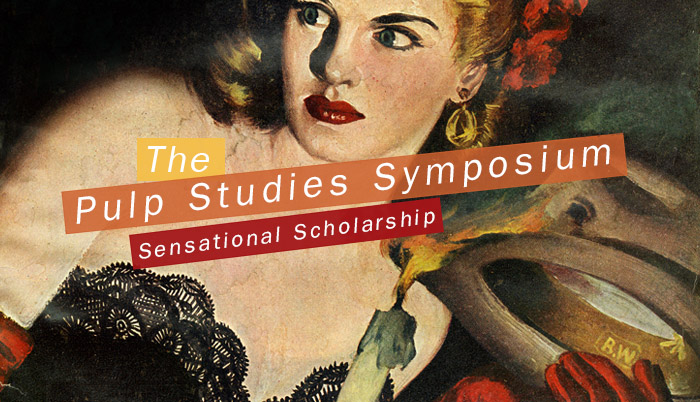Presentation Title
Constructing the Pulp Genre System
Abstract
Approaches to the study of the history of popular genres often focus on charting the social and technological changes that make these genres imaginable, identifying authors or editors who codified generic expectations or sought out innovations, or tracing stylistic and conceptual continuities back to a source. Until recently there has been less emphasis on the role the pulp magazines as a medium that facilitated the collaboration of readers, editors, and writers in the production of popular genres. This paper mines the letters pages of genre specific pulp magazines to show how readers actively shaped the pulp genre system. Focusing on moments in which readers comment, for example, on the desirability of futuristic detective stories in magazines devoted to science fiction or on the degree of strangeness required to make a work legible as a weird story, I show how readers participated in a system that slowly separated detective fiction from stories of adventure, fantasy from supernatural horror, and science fiction from fantasy. Focusing on a genre system that arises out of the pulps provides a more accurate picture of the habits of pulp readers, who rarely devoted themselves exclusively to a single magazine. Furthermore, pulp readers unavoidably had to select titles from a dizzying range of competing titles. These choices only became more complicated as publishers began producing titles that offered different twists on established genres and, in some case, outright mash-ups like Spicy Detective Stories, which sought to combine the masculinist appeal of detective fiction with outright titillation. Attending to the complexity of this system allows for a clearer sense of the way the pulps helped to codify the genre system we now take for granted.
Constructing the Pulp Genre System
Approaches to the study of the history of popular genres often focus on charting the social and technological changes that make these genres imaginable, identifying authors or editors who codified generic expectations or sought out innovations, or tracing stylistic and conceptual continuities back to a source. Until recently there has been less emphasis on the role the pulp magazines as a medium that facilitated the collaboration of readers, editors, and writers in the production of popular genres. This paper mines the letters pages of genre specific pulp magazines to show how readers actively shaped the pulp genre system. Focusing on moments in which readers comment, for example, on the desirability of futuristic detective stories in magazines devoted to science fiction or on the degree of strangeness required to make a work legible as a weird story, I show how readers participated in a system that slowly separated detective fiction from stories of adventure, fantasy from supernatural horror, and science fiction from fantasy. Focusing on a genre system that arises out of the pulps provides a more accurate picture of the habits of pulp readers, who rarely devoted themselves exclusively to a single magazine. Furthermore, pulp readers unavoidably had to select titles from a dizzying range of competing titles. These choices only became more complicated as publishers began producing titles that offered different twists on established genres and, in some case, outright mash-ups like Spicy Detective Stories, which sought to combine the masculinist appeal of detective fiction with outright titillation. Attending to the complexity of this system allows for a clearer sense of the way the pulps helped to codify the genre system we now take for granted.


